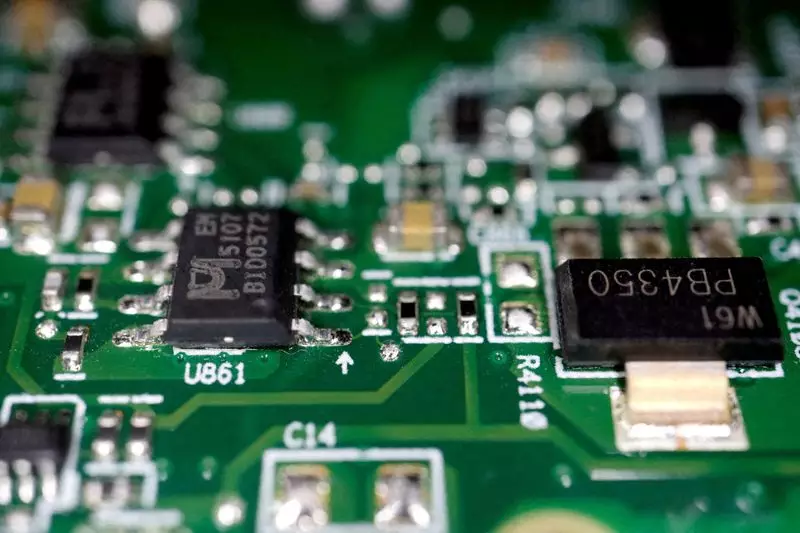The U.S. Commerce Department made a significant commitment on Tuesday, revealing a finalized $406 million grant to Taiwan’s GlobalWafers, a move aimed at bolstering domestic production of silicon wafers. This funding is critical as it paves the way for the establishment of the first high-volume American production facilities for 300-mm wafers, a vital component in advanced semiconductor manufacturing. These initiatives will be implemented in Texas and Missouri, reinforcing the Biden administration’s commitment to rejuvenating the domestic semiconductor supply chain.
This substantial investment is indicative of a broader strategy to combat the global semiconductor shortage, which has been exacerbated by geopolitical tensions and supply chain disruptions. GlobalWafers plans to implement a $4 billion investment across the two states to construct state-of-the-art manufacturing facilities. This venture is expected to generate 1,700 construction jobs alongside 880 manufacturing roles, directly benefiting local communities and enhancing the economic landscape in both Texas and Missouri.
Presently, the semiconductor sector is heavily dominated by a few key players, with more than 80% of the global 300-mm wafer market being controlled by five major companies. In a landscape where approximately 90% of silicon wafers originate from East Asia, the establishment of facilities in the U.S. represents a significant shift. This move not only aims to mitigate reliance on foreign suppliers but also sets the stage for more resilient domestic production capabilities, particularly for critical technologies used in sectors like defense and aerospace.
Silicon wafers serve as a foundational element in the fabrication of semiconductors, which power a vast array of electronic devices from smartphones to sophisticated military systems. The enhanced production capacity for silicon-on-insulator wafers further highlights the strategic importance of this investment, as these wafers are essential for advanced semiconductor applications. By localizing production, the U.S. aims to secure its technological edge and foster innovation within its shores.
The grant to GlobalWafers is part of a larger initiative under the CHIPS and Science Act, which allocates $52.7 billion for semiconductor manufacturing and research. The urgency to finalize these grant awards comes in light of an impending presidential transition, adding a layer of pressure on the Commerce Department to act quickly. Recent awards to other major players in the semiconductor industry underscore the government’s push to facilitate a sector that is crucial for national security and economic vitality, reflecting a broader trend of reshoring manufacturing activities.
As the U.S. seeks to enhance its semiconductor production capabilities through strategic partnerships and investments, the $406 million grant to GlobalWafers stands as a pivotal step toward achieving this goal. With a focus on job creation, economic revitalization, and enhanced production capacities, this initiative signals a future where the U.S. can diminish its reliance on East Asian semiconductor supplies while fostering a robust domestic industry that can innovate and grow in an increasingly complex global landscape.

